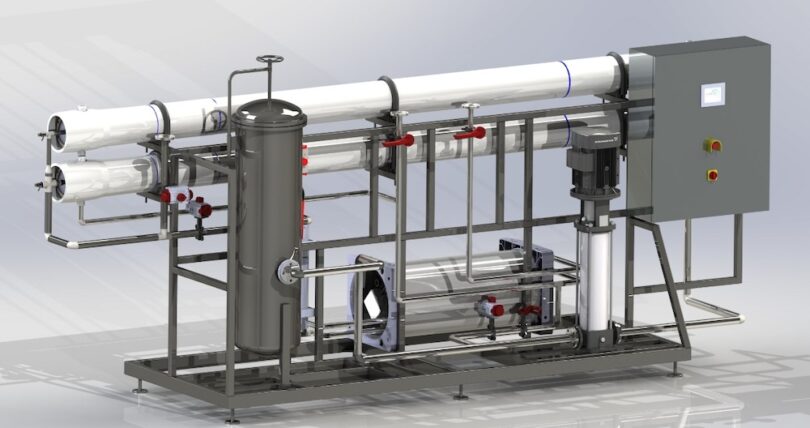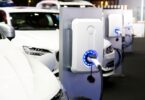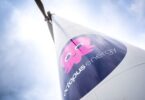An Eco MultiPro reverse osmosis (RO) and electrodeionisation (EDI) system from the UK’s Envirogen Group is supplying the purified, demineralised water that’s essential to Surrey County Council’s new Energy from Waste (EfW) power plant at Eco Park Surrey.
Eco Park Surrey is a collection of four facilities near Shepperton, including a community recycling centre, a recyclables bulking facility, a gasification facility and an anaerobic digestion facility. The site processes waste from across Surrey, using food and black bag waste to generate electricity.
The site can accept approximately 40,000 tonnes of food waste from across Surrey and process it in the anaerobic digestion facility to generate electricity and produce a soil improver, which can be used by farmers. The gasification facility can process up to 55,000 tonnes of black bag waste from three districts in north Surrey to generate electricity.
Fundamental to the functioning of the fully-operational combined heat and power plant is a steady stream of high-quality, purified water to protect the boilers and steam turbine against mineral build-up and water loss. The benefits include lower operating costs and increased water treatment plant efficiency.
Eco Park Surrey, built for the council by waste management company SUEZ Group, transforms 40,000 tonnes of food waste and up to 55,000 tonnes of general refuse waste a year into electricity. It does this by using biogas from anaerobic digestion of the food waste and gasification of the general refuse waste as the power sources.
“The plant supplies electricity to the national grid – enough for 4,262 homes in 2022 – while helping to overcome the growing and common problem among local authorities of how to dispose of waste without using landfill,” says Ian Pearson, European Projects Director, Envirogen Group.
Pioneering
“Although steam cycles are designed as closed systems, modern boilers still require a stream of demineralised water to make up for losses,” Pearson adds. “Scale formation makes steam generation processes less efficient. This is where Envirogen Group became involved with its Eco MultiPro RO-EDI water system technology. Our skid-mounted, modular, automated solution protects the plant’s generator, requires limited operator invention, has the smallest possible footprint and ensures a low operating cost. It’s very well suited for use in EfW plants.
“The Eco MultiPro RO-EDI approach replaces traditional, resin beds-based systems that involve a complex operator-intensive process and equipment downtime. Those systems also carry risks associated with chemical regeneration of the resin beds, which requires chemical handling on-site and the generation of an effluent stream that needs to be treated,” says Pearson.
“In a site, Eco Park Surrey, that is completely focused on reducing waste and doing so in a safe and controlled manner, the traditional approach to water purification wasn’t an option. Envirogen Group’s was.”
Growing
Pearson sees a bright future for the provision of demineralised water to power plants like Eco Park Surrey’s. “The EfW market is growing, and governments around the world are looking for novel, efficient ways to meet the energy demands of growing populations. Systems that enhance cost-efficiencies and are simple to operate will positively impact the design and running costs of EfW plants.”
Envirogen’s Eco MultiPro solution is easily transferable to other applications, whatever the fuel, and is capable of providing up to 50m3/hr as standard. It deploys the latest EDI technology in a three-step treatment using reverse osmosis technology, gas transfer membranes and EDI system treatment to remove all scale-forming ions that might impact the efficiency of the plant’s generator. The resulting purified water has a conductivity of less than 0.1 micro siemens (µS), with less than 10 parts per billion (ppb) silica and less than 3 ppb sodium.







